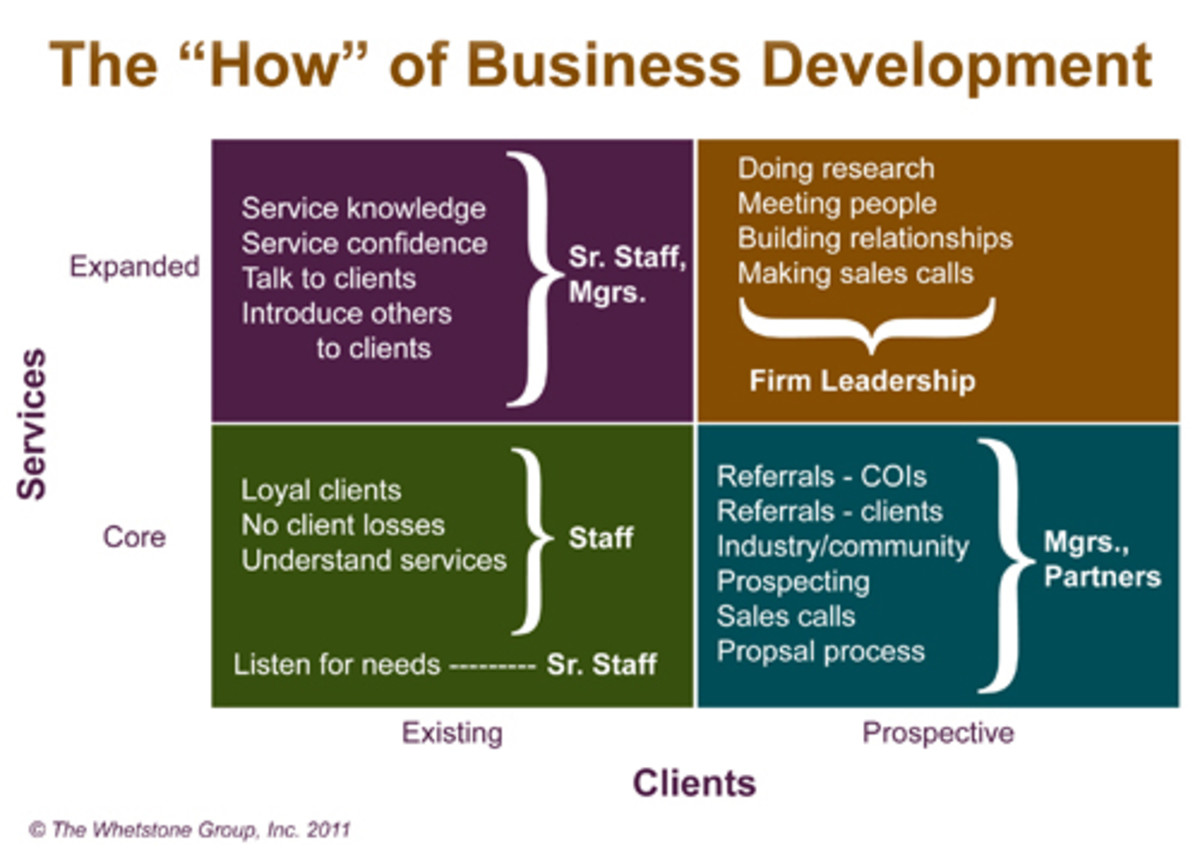
How to Become a Business Development Pro: Expert Tips
Are you eager to unlock new growth opportunities for your company and advance your career? Becoming an expert in business development might just be the perfect path for you.
Imagine a role where you are the driving force behind your company’s expansion, crafting strategies that generate new revenue streams and forge lasting partnerships. It’s a position that not only challenges your strategic thinking but also allows your creativity to shine.
In this guide, you’ll discover the key steps to transition into a business development role, equipping you with the skills and insights needed to thrive. Stay with us as we unravel the secrets to becoming a successful business development professional, and prepare to transform your career potential like never before.
Skills For Success
Success in business development requires a unique set of skills. These skills help professionals drive growth and build meaningful partnerships. Let’s explore the key skills for success in this field.
Communication Mastery
Clear communication is essential in business development. It helps convey ideas and negotiate deals. Professionals must listen actively. They also need to express their thoughts clearly. This helps avoid misunderstandings. Effective communication builds trust with clients and colleagues. It also enhances teamwork and collaboration.
Analytical Thinking
Business developers must assess market trends and data. Analytical thinking helps identify opportunities and risks. This skill allows professionals to make informed decisions. They evaluate strategies and predict outcomes. Strong analytical skills also aid in problem-solving. They allow a clear understanding of complex situations.
Relationship Building
Building strong relationships is crucial in business development. This skill helps create long-term partnerships. Trust and mutual respect form the foundation. Professionals must connect with others on a personal level. They should understand clients’ needs and goals. Strong relationships lead to repeat business and referrals.

Networking Strategies
Networking is crucial for a career in business development. It opens doors to new opportunities. Good networking builds professional relationships. It enhances your reputation in the industry. This section explores effective networking strategies.
Building Connections
Attend industry events. Face-to-face meetings help create real bonds. Carry business cards. Introduce yourself with confidence. Ask open-ended questions. Listen actively to others. Follow up with an email. Show genuine interest in their work.
Leveraging Social Media
Social media is a powerful networking tool. Use LinkedIn for professional connections. Share industry-related content regularly. Join relevant discussions. Comment on posts thoughtfully. Twitter can also help you engage with industry leaders. Be professional and concise in your interactions.
Joining Industry Groups
Industry groups offer valuable networking opportunities. Join local business associations. Participate in group activities. Attend seminars and workshops. Engage with members actively. Contribute ideas and solutions. These groups can provide mentorship and guidance.
Market Analysis Techniques
Market analysis is crucial for business development. It helps identify opportunities, understand competitors, and gain customer insights. Thorough analysis provides a clear roadmap for growth. It guides strategic decisions and enhances performance. Let’s explore effective techniques to refine your market analysis skills.
Identifying Opportunities
Spotting opportunities requires keen observation. Start with analyzing market trends. Look for emerging demands in the industry. Study economic changes and technological advancements. These factors often signal new business opportunities. Also, monitor social changes. Shifts in consumer behavior can reveal untapped markets. Networking is another valuable method. Engage with industry leaders and experts. Their insights can highlight potential growth areas.
Understanding Competitors
Competitor analysis is essential for strategic positioning. Begin by identifying key competitors. Research their strengths and weaknesses. Examine their product offerings and pricing strategies. Analyze their marketing efforts. This helps understand what attracts their customers. Study their customer reviews. It reveals their market reputation. Also, keep track of their innovations. Knowing competitors’ moves allows for better strategic planning.
Customer Insights
Understanding customers is vital for business success. Conduct surveys to gather feedback. Learn about their preferences and needs. Use social media platforms for engagement. They offer real-time insights into customer behavior. Analyze customer data thoroughly. It helps in tailoring products to meet demands. Observe purchasing patterns. They reveal valuable insights into consumer trends. Customer insights drive personalized strategies and enhance satisfaction.
Sales Techniques
Understanding customer needs is key in business development. Building relationships and listening actively can drive sales success. Tailor strategies to fit client goals and maintain a strong connection for future opportunities.
Sales techniques play a vital role in business development. They are essential for building relationships and driving growth. Understanding these techniques can boost your career in business development. Let’s explore some key strategies to succeed in sales.
Pitching Effectively
An effective pitch grabs attention quickly. Start with a strong opening line. Highlight the benefits of your product or service. Use clear language and avoid jargon. Keep your pitch concise. Make it relatable to your audience. Ask questions to engage them. Listen actively to their responses. Adjust your pitch based on their feedback. Practice regularly to improve your delivery.
Negotiation Tactics
Successful negotiation requires preparation. Know your product inside out. Understand your client’s needs and priorities. Set clear objectives for the negotiation. Keep an open mind and be flexible. Use persuasive communication. Offer solutions that benefit both parties. Stay calm and patient during discussions. Be ready to walk away if necessary. Build trust with honesty and transparency.
Closing Deals
Closing deals is the final step in sales. Summarize the benefits of your offer clearly. Address any remaining concerns or objections. Use urgency to encourage decision-making. Ask for the commitment confidently. Provide assurance and support post-sale. Celebrate the deal with the client. Maintain the relationship for future opportunities. Follow up to ensure satisfaction and loyalty.
Utilizing Technology
In today’s digital age, technology plays a crucial role in business development. It helps streamline processes, improve efficiency, and enhance decision-making. To succeed in business development, embracing technology is essential. Let’s delve into some key technological tools.
Crm Tools
Customer Relationship Management (CRM) tools help manage interactions with clients. They store customer information and track communication history. CRMs improve client relationships by providing valuable insights. This technology helps businesses personalize their approach. It ensures each client feels valued and understood. Popular CRM tools include Salesforce, HubSpot, and Zoho.
Data Analytics
Data analytics allows businesses to make informed decisions. It helps identify trends and patterns in customer behavior. By analyzing data, businesses can predict future outcomes. This information is vital for strategic planning. Tools like Google Analytics and Tableau assist in data interpretation. They transform raw data into actionable insights.
Automation Solutions
Automation solutions save time and reduce human error. They handle repetitive tasks, allowing focus on strategic activities. Email marketing and social media scheduling are examples. Automation tools enhance productivity and efficiency. Popular options include Mailchimp, Buffer, and Hootsuite. These tools ensure consistent engagement with clients.

Continuous Learning
Becoming a business development expert requires continuous learning and adapting to market changes. Stay updated on industry trends. Build strong communication and negotiation skills. Seek mentorship and real-world experience to grow your expertise.
Continuous learning is a cornerstone of success in business development. To stay ahead, you must remain open to new ideas, skills, and industry trends. It’s not just about keeping up; it’s about staying ahead.
Staying Updated
In the fast-paced world of business development, being informed is crucial. Subscribe to industry newsletters, read relevant blogs, and follow thought leaders on social media. This daily habit can give you insights into emerging trends and strategies, ensuring you remain competitive. Imagine starting your day with a cup of coffee and a quick scroll through your favorite industry news sources. This simple routine can be your gateway to new opportunities and innovative approaches. Ask yourself: Are you setting aside time each day to learn something new about your industry?
Attending Workshops
Workshops offer hands-on learning experiences that are hard to replicate online. They are perfect for deep diving into specific topics and gaining practical skills. I once attended a workshop on negotiation skills, and the role-playing exercises were eye-opening. They not only improved my negotiation techniques but also boosted my confidence. Look for workshops that address your current challenges or areas where you want to grow.
Seeking Mentorship
Mentorship can accelerate your learning curve by providing guidance from someone who’s been there before. A mentor can offer valuable insights, share their experiences, and help you navigate complex situations. When I started in business development, my mentor’s advice was invaluable. They taught me how to build strong relationships and close deals effectively. Identify someone in your network whose expertise you admire and reach out for guidance. What lessons could you learn from someone who has already achieved what you’re aiming for? Continuous learning is not just a task but an investment in your future. By staying updated, attending workshops, and seeking mentorship, you can enhance your skills and advance your career in business development.

Frequently Asked Questions
What Skills Are Essential For Business Development?
Essential skills include strong communication, strategic thinking, and relationship-building. You’ll also need sales acumen and market analysis skills. Understanding customer needs and having problem-solving abilities are crucial. Additionally, being adaptable to changing business environments enhances your effectiveness in this role.
How Can I Start A Career In Business Development?
Begin by obtaining a relevant degree in business or sales. Gain experience through entry-level roles in sales or marketing. Networking and learning from experienced professionals can also help. Consider taking courses in business development to enhance your skills and increase your marketability.
What Are The Key Responsibilities In Business Development?
Key responsibilities include identifying growth opportunities and building relationships with potential clients. Developing strategies to expand the business and increase revenue is crucial. You’ll also negotiate deals and collaborate with other departments to ensure successful project implementation. Analyzing market trends and customer feedback is essential for informed decision-making.
How Does Business Development Differ From Sales?
Business development focuses on long-term growth and strategic partnerships. It involves identifying new market opportunities and building relationships. Sales, on the other hand, is more about closing deals and meeting short-term revenue goals. While both roles aim to drive business growth, they operate at different stages of the process.
Conclusion
Becoming a business development professional takes dedication and learning. Start with understanding your market. Build strong relationships with clients and colleagues. Stay updated with industry trends to remain competitive. Practice effective communication and negotiation skills regularly. Networking is key, so connect with professionals in your field.
Keep honing your skills and embrace new challenges. Remember, persistence and patience lead to success. With these steps, you can grow in your business development journey. Stay committed and watch your career flourish.





